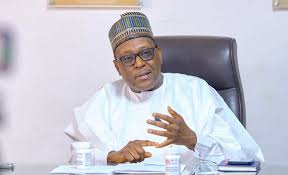
Nigeria’s Coordinating Minister of Health and Social Welfare, Ali Pate, says President Bola Ahmed Tinubu’s macroeconomic reforms have strengthened Nigeria’s health sector revitalisation drive by enabling states to adopt a harmonised, well-funded, and closely monitored implementation framework.
Pate made this known while addressing World Bank President Ajay Banga and other global health leaders at the inaugural meeting of the World Bank’s Health Works Leaders Coalition, held on the sidelines of the 2025 World Bank/IMF Annual Meetings in Washington D.C.
He disclosed that in the first half of 2025 alone, Nigeria retrained over 70,000 health workers, enrolled 20 million citizens under various health insurance schemes, and recorded more than 80 million new visits across 8,500 revitalised primary healthcare facilities nationwide.
According to him, these achievements reflect the outcomes of coordinated investments in healthcare infrastructure, workforce development, and community-based insurance coverage under the Renewed Hope Health Agenda.
Pate added that the Federal Government, in collaboration with development partners, is also scaling up efforts to strengthen disease surveillance systems, expand immunisation coverage, and improve maternal and child health outcomes.
He reaffirmed Nigeria’s commitment to achieving Universal Health Coverage (UHC), stressing that sustainable financing, digital innovation, and efficient governance remain central to ongoing reforms.
“Our goal is a resilient, equitable health system that delivers quality care to every Nigerian, regardless of location or economic status,” Pate said.
The minister thanked the World Bank, WHO, UNICEF, and other partners for their continued support, expressing optimism that sustained collaboration will accelerate Nigeria’s journey toward a healthier, more productive population.



